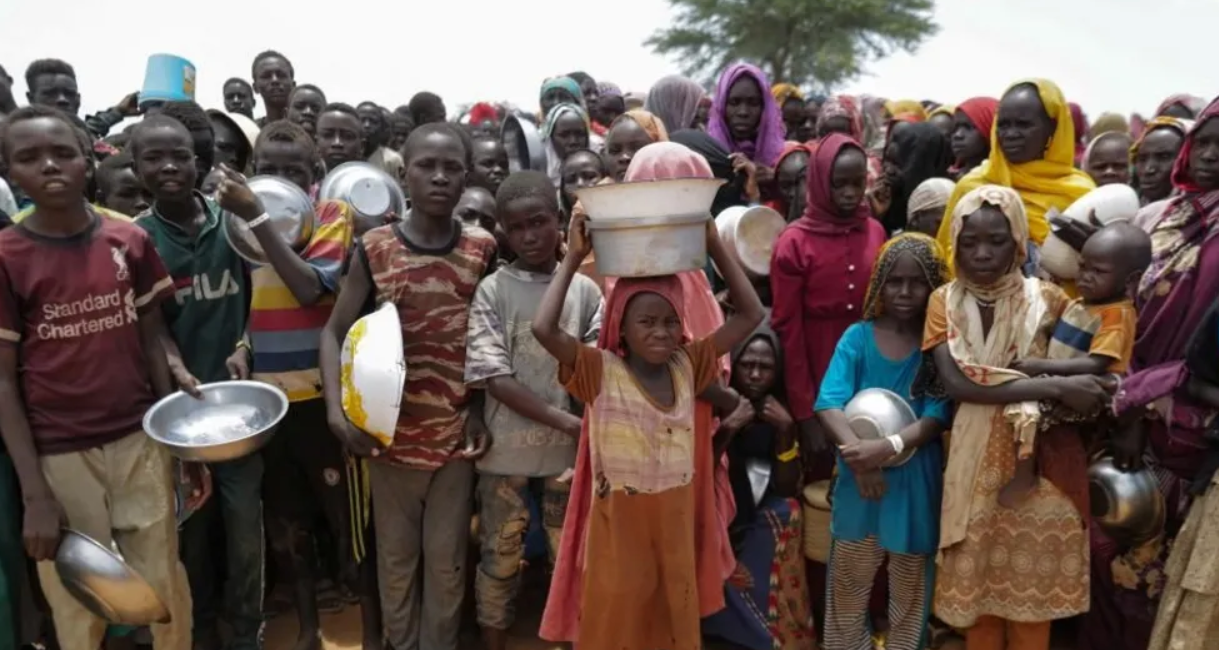The Humanitarian Crisis in Sudan: A Tragic Predicament for Children
Children are suffering greatly as a result of the continuing civil war in Sudan, which has caused one of the worst humanitarian disasters in recent times. Catherine Russell, head of the United Nations Children’s Fund (UNICEF), has stated that Sudan has emerged as one of the most dangerous countries for children due to the extraordinary difficulties they are encountering, which endanger their lives, growth, and opportunities for the future.
The Crisis’s Scope
Serious concerns have been raised regarding the situation in Sudan:
1. Uprooting: With about 5 million children forcibly removed from their homes, Sudan currently ranks highest in the world for child displacement.
2. Malnutrition: 4.1% of children experience acute malnutrition, and 9.1% do not have consistent access to sufficient nutrition.
3. The majority of Sudanese children are not in school at the moment, which puts them at danger of becoming a “lost generation.”
4. Concerning food security, experts have projected that 70% of Sudan’s population will be in danger of severe starvation by September, which might result in the loss of millions of lives.
Issues at Their Foundation
The Sudanese Armed Forces and the Rapid Support Forces (RSF) are still at war, which has led to a humanitarian disaster in the country. The country is now practically in two halves due to this civil conflict, which has been exacerbated by both sides:
1. Food supplies into areas held by the RSF have been limited by the Sudanese army due to the ongoing conflict.
El Fasher is home to over two million people, and for more than a month, RSF fighters have besieged the city, accusing them of extensive resource theft.
Because of these measures, Sudan’s food economy has collapsed, making it extremely difficult to provide life-saving relief to individuals who need it.
Effects on Young Minds
Children in Sudan are bearing the brunt of this catastrophe, which has far-reaching consequences:
1. Malnutrition and hunger: Acute malnutrition poses a threat to the survival of millions of children who experience extreme food insecurity.
Secondly, displacement: when people are uprooted from their homes and communities, it can have a devastating effect on children’s lives.
3. Derailment of education: With the majority of children not in school, there is a great chance of long-term educational failures and possible future instability.
4. Vulnerabilities to diseases and long-term health problems: Children are more likely to suffer from these problems when they lack access to healthcare and adequate nutrition.

Immediacy of Response
The urgent necessity of taking action is emphasized by Catherine Russell. The issue has escalated to the point that many youngsters may suffer permanent harm if assistance is delayed. There is always room for improvement on a larger scale, but without immediate help, some youngsters suffering from extreme hunger and malnutrition may not make it.
Addressing International Concerns and Difficulties
The international community has paid little attention to or provided any aid for the issue, despite its gravity. This is due to a number of things:
1. Conflicts in Haiti, Ukraine, and Gaza have taken resources and attention away from one another.
Second, humanitarian groups are having a hard time getting their aid to the people who need it because both sides of the conflict have limited its delivery.
3. Peace measures have not fully materialized: The United Nations’ recent calls for calm and the United States’ attempts to revive peace talks have not produced substantial outcomes.
What Comes Next
A comprehensive strategy is needed to alleviate the humanitarian catastrophe in Sudan:
1 Overcoming access constraints and delivering food and medical supplies to impacted populations must be an immediate priority.
2. Global attention: In order to rally support and initiate diplomatic initiatives, it is essential that the Sudan problem receives more exposure on a global scale.
Thirdly, resolving the conflict requires long-term international involvement in order to get the warring factions to sit down and negotiate a permanent peace.
4. Support for education: Programs that encourage kids to go back to school and make up for lost knowledge are critical to Sudan’s future security.
5. Nutrition and health programs: It is necessary to implement targeted interventions to combat malnutrition and supply basic healthcare services.
In summary,
The world must immediately respond to the humanitarian situation in Sudan, especially the effects on children. The international community must make measures to end suffering, safeguard vulnerable populations, and end the conflict peacefully a top priority as the situation worsens. Peace in the area and the future of millions of kids in Sudan are on the line. Preventing additional disaster and laying the framework for Sudan’s future recovery and prosperity requires swift and persistent engagement, which is both morally and strategically vital.



















